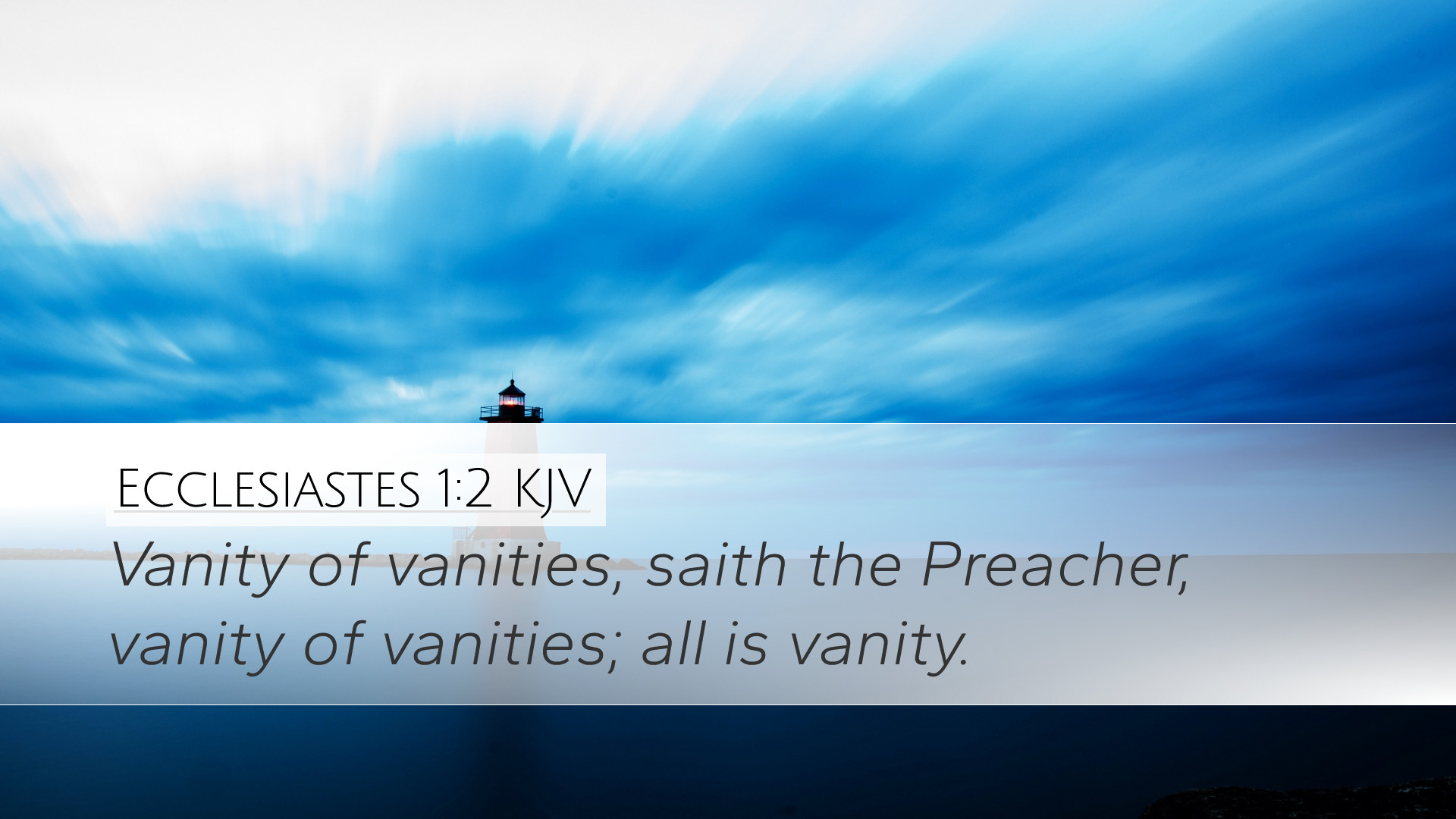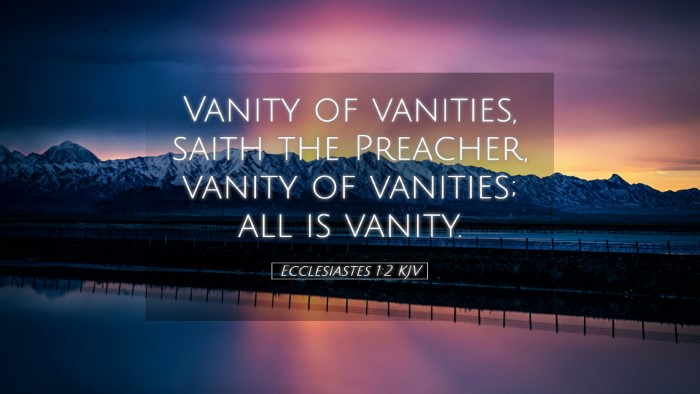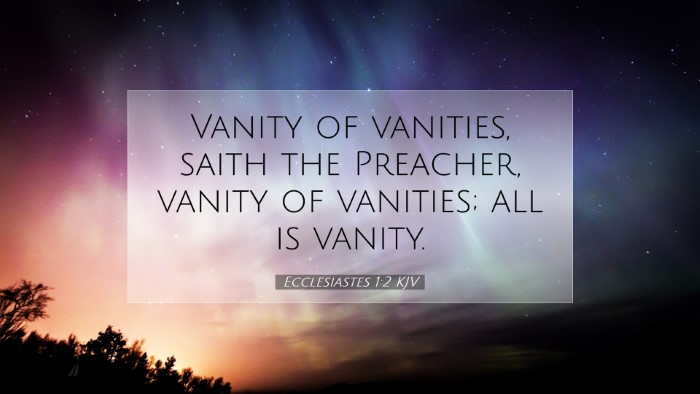Commentary on Ecclesiastes 1:2
Ecclesiastes 1:2 (KJV): "Vanity of vanities, saith the Preacher, vanity of vanities; all is vanity."
Introduction
The opening verse of Ecclesiastes sets the tone for the entire book. This declaration of 'vanity' emphasizes the futility and ephemeral nature of human endeavors and establishes a framework for understanding the Preacher’s reflections on life.
Contextual Significance
The phrase "vanity of vanities" is a superlative expression, akin to saying “the most vain of all.” This repetition highlights the seriousness of the claim. The book is traditionally attributed to Solomon, and thus the insights reflect both his wisdom and his musings on the human condition.
Insights from Public Domain Commentaries
Matthew Henry’s Commentary
Matthew Henry notes that the term "vanity" encompasses emptiness, futility, and an absence of value. He argues that this opening declaration serves not just as an introduction but as an essential truth that underscores the human experience. The Preacher seeks to show that earthly pursuits ultimately lead to dissatisfaction, echoing a broader biblical theme of the transitory nature of life.
Henry elaborates that this statement warns against a life consumed by materialism and worldly aspirations. He urges readers to consider how these pursuits might lead to a neglect of spiritual matters, thus promoting reflection on eternal values versus temporal gains.
Albert Barnes’ Notes on the Bible
Albert Barnes interprets "vanity" (Hebrew: "hebel") as signifying something that is fleeting and insubstantial. He argues that the Preacher’s assertion reflects a profound understanding that human life is filled with unanswered questions and the inevitability of death. Barnes emphasizes that while life’s endeavors appear significant, in the grand scheme, they are transient and often unfulfilling.
In commenting further on the implications of this verse, Barnes reinforces the idea that satisfaction cannot be derived from intellectual pursuits, wealth, or pleasure, as they ultimately lead to a sense of emptiness. The preacher directs readers to consider the overarching sovereignty of God, which provides true meaning and purpose beyond mere worldly achievements.
Adam Clarke's Commentary
Adam Clarke suggests that the repetition within the verse serves to amplify its importance. He sees it as a solemn proclamation of the fleeting nature of human existence. Clarke draws attention to the various aspects of life that individuals chase—wealth, wisdom, pleasure—each arriving at a point of emptiness when scrutinized closely.
Clarke further argues that this verse is not merely pessimistic but rather a call to discernment. It challenges readers to look beyond immediate pleasures and strive for a deeper understanding of their purpose in the divine narrative. He believes that acknowledging the vanity of all earthly things can lead to a legitimate pursuit of spiritual fulfillment.
Philosophical Reflections
The proclamation of "all is vanity" invites philosophical inquiry into existence itself. It poses questions about the nature of fulfillment, happiness, and purpose. This opening verse encapsulates a worldview that resonates with existential themes prevalent in literature and philosophy, pointing to the quest for authenticity amid life’s transitory nature.
Theological Implications
Ecclesiastes 1:2 serves as a theological critique of humanity's attempts to find meaning in life through temporal means. The Church historically views this text as an invitation to re-evaluate what brings true joy and satisfaction, encouraging faith in God as the ultimate source of purpose.
- Humility: Recognizing the vanity warns of the need for humility in human endeavors.
- Desperation for God: It leads to a deeper yearning for divine engagement and understanding.
- Prioritizing the Eternal: The passage encourages believers to focus on eternal life and the Kingdom of God.
Conclusion
The opening verse of Ecclesiastes encapsulates profound truths that have echoed through time. As pastors, students, theologians, and scholars ponder this passage, they are invited to consider its implications on the human condition, the search for meaning, and the reliance on God for ultimate satisfaction. The reflection on vanity serves both as a caution and an encouragement to seek that which endures beyond the uncertainties of this life.


